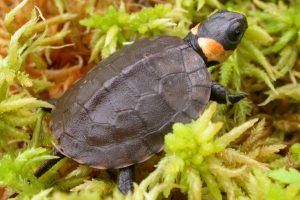 Bog Turtle Project
Bog Turtle ProjectThe Bog Turtle (Glyptemys muhlenbergii) is the smallest turtle in North America, and one of the rarest. Habitat specialists, Bog Turtles live and reproduce in specific types of rare wetlands. These wetlands are in urgent need of conservation and restoration. Project Bog Turtle (PBT) is an independent, private-sector, volunteer conservation initiative dedicated to the preservation of the southern population of Bog Turtles and their habitats. PBT was launched in 1995 as a subsidiary of the North Carolina Herpetological Society and is funded by private donations and fundraisers. All donations are tax-deductible.
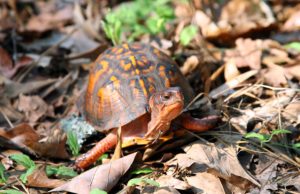 Box Turtle Connection
Box Turtle ConnectionThe Box Turtle Connection is a long-term study on Box Turtles (Terrapene carolina) in North Carolina. Our purpose is to learn more about the status and trends in Box Turtle populations, identify threats, and develop strategies for long term conservation of the species.
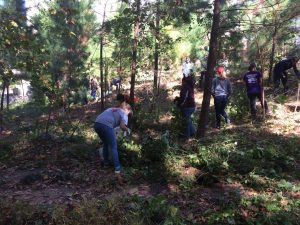 Peabody Park Woods Restoration
Peabody Park Woods RestorationSince 1997, the Biology Department has helped the UNCG Peabody Park Preservation Committee (PPPC) restore Peabody Park Woods. These woods provide a rare window into what Piedmont, NC looked like 200 yrs. ago. During Fall and Spring “Ivy Pulls”, many faculty, staff, and students work with PPPC members to remove invasive species. Sufficient progress has now been made to allow us to begin reintroducing native woody species into the Woods, thereby augmenting the biodiversity.
Herpetology Education in Rural Places and Spaces (The HERP Project) consists of four threads (Celebrations, Cyberhub, Herpetology Research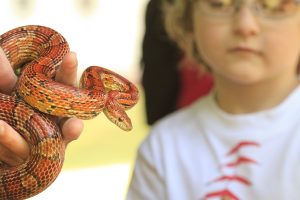
Experiences, and Studies) to support educational, conservation and field ecology experiences related to herpetology, which is the study of reptiles (turtles, snakes, lizards, alligators) and amphibians (frogs and salamanders). This website, The Herp Project Cyberhub, is designed for people of all ages who are interested in herpetology, particularly the herpetology of North Carolina.
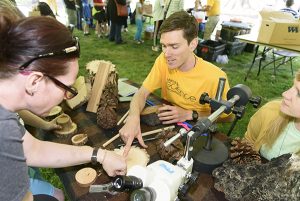 RISE
RISEThe RISE Network is a coalition of educators and researchers involved in STEM (science, technology, engineering, and math) education. The network provides access to STEM funding and research opportunities, promotes working partnerships, offers a monthly lunch series, and sponsors special events such as workshops and guest speakers. Network members include UNCG faculty and researchers, community educators, and grant specialists.
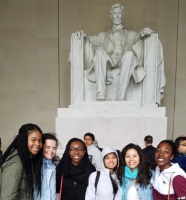
The STAMPS (Science, Technology and Math Preparation Scholarships) Program at UNCG is supported by the National Science Foundation. It offers scholarships of up to $4,600 per year for academically talented undergraduate students in the sciences. STAMPS provides financial and community support for undergraduate students who are majoring in Biology, Chemistry, Computer Science, Geography, Mathematical Sciences, or Physics and Astronomy. Students are awarded scholarships based on a demonstration of both a significant promise for success in science/math and a measurable financial need. In addition to financial support, STAMPS incorporates a variety of community-building measures, including peer mentors, a science colloquium series, tutoring, and field trips to research facilities.
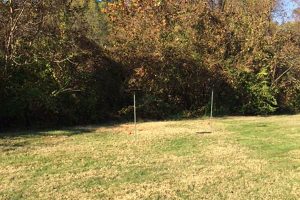 The Wetlands Project
The Wetlands ProjectThe wetlands construction project is consistent with the UNCG strategic plan. Wetlands promote environmental health and increase our curiosity about a natural environment in North Carolina. They serve as a model for environmental health to our community and provide a means for education and research on aquatic environments as our global climate patterns change. As a campus that prides itself on its beauty, commitment to sustainability, and education on environmental issues, UNCG is situated to construct small wetland habitats for environmental, educational, and research purposes.